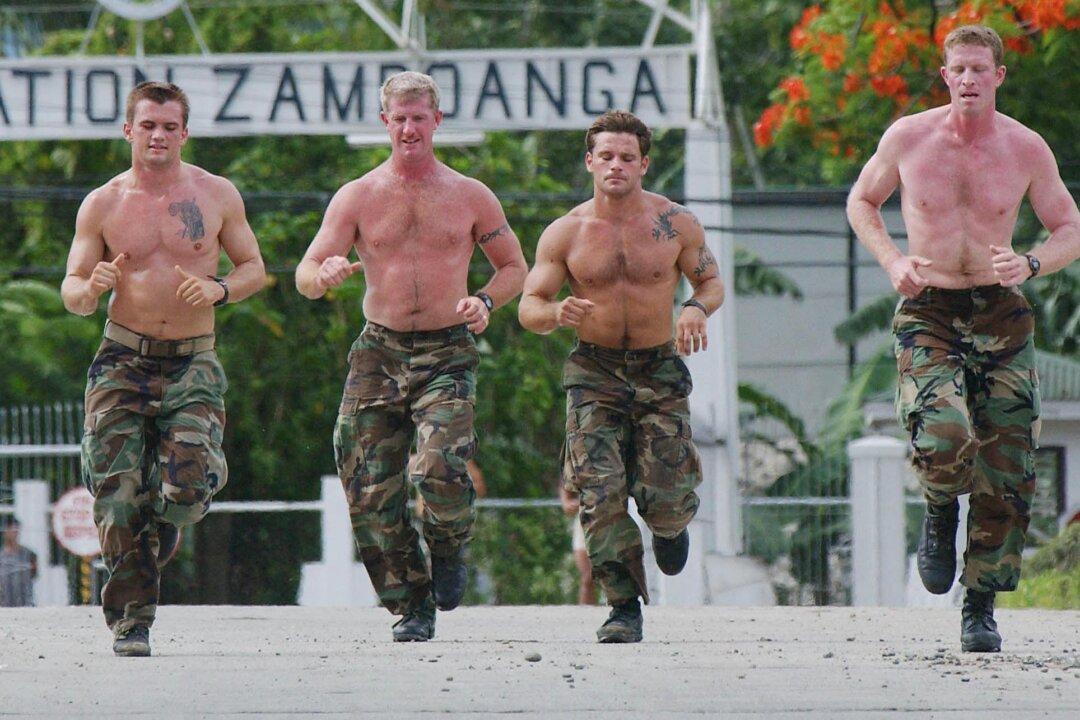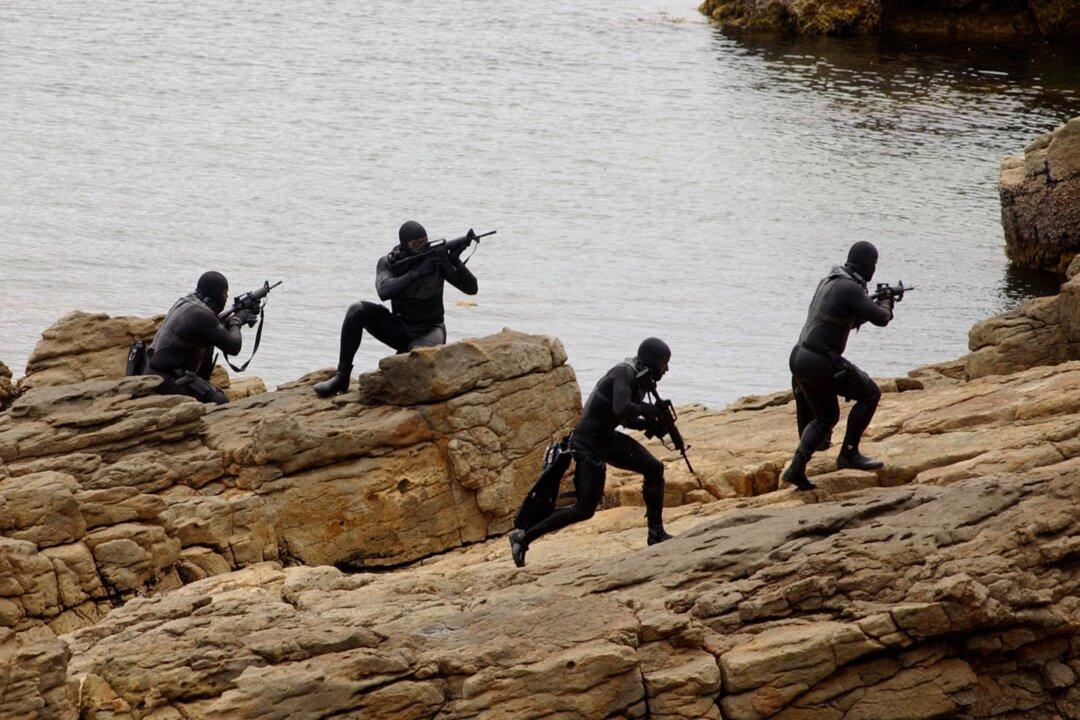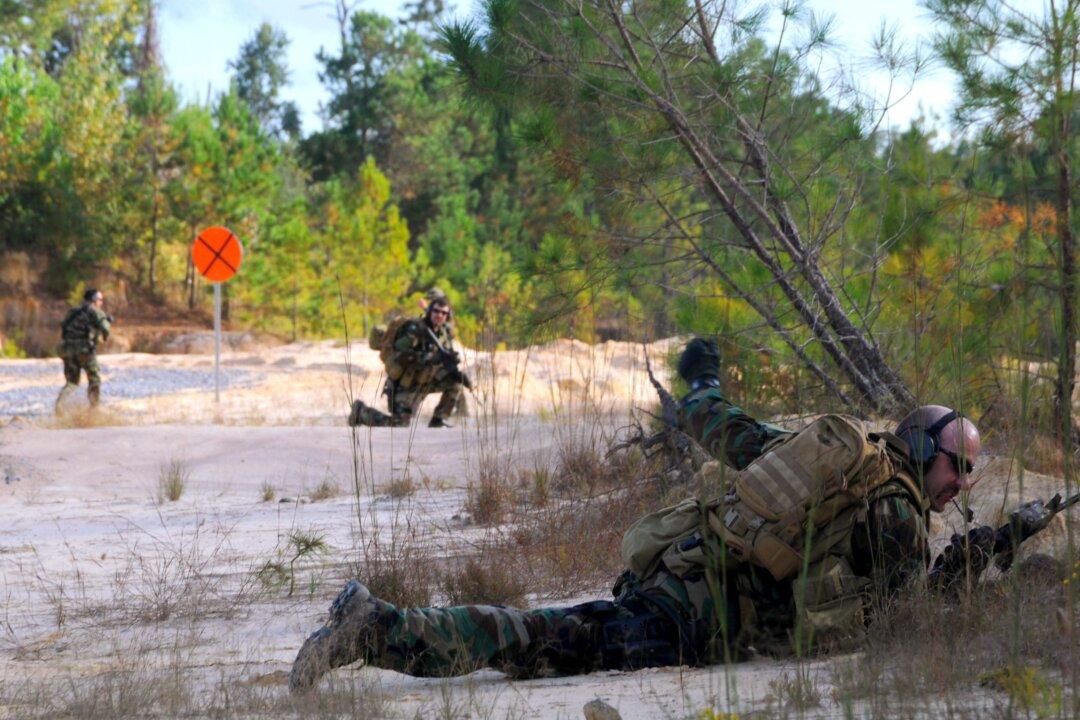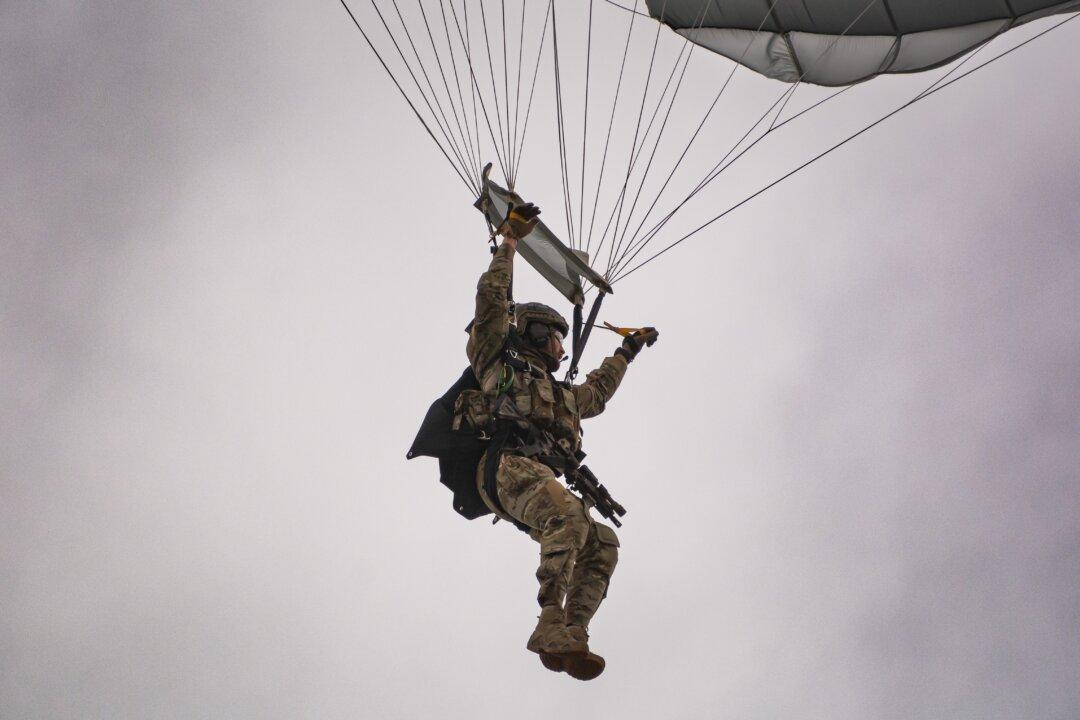Eventually I was sent back stateside and ended up serving with a Navy Reserve unit stationed in Pennsylvania. After that, I worked for a short time as a prison guard, until one day I finally received the orders I had been waiting for. I was told to report to BUD/S (Basic Underwater Demolition/ SEAL) in the next thirty days.
It was one of the happiest moments of my life.

What followed was months of grueling physical and mental challenges that were not only designed to help my classmates and I be as prepared as possible, but also turn us into the most disciplined and well-trained warriors on the planet. We honed our skills at combat, swimming and diving, shooting, demolition training, small unit tactics, and maritime operations. We also learned how to function as a well-organized team—both in and out of the water— practicing hand-to-hand and small arms tactics along the way. We learned to navigate using a map and compass, practiced rappelling, and became proficient in using demolitions like C4 and TNT to destroy underwater targets. It was both exhausting and exhilarating at the same time, and when it was over, our class of 108 had been whittled down to just twenty-three men who had survived the intense experience.
Even after completing the arduous training, I still wasn’t technically a Navy SEAL. A six-month probation period followed, which included additional advanced training in a wide variety of areas. I attended and truly enjoyed the survival, evasion, resistance escape (SERE) training. I graduated as an honor student and was asked to raise the American flag when the course ended. I also became more skilled as a corpsman by attending a two-month long Special Forces Medic course, and earned my static line and free fall jump certifications. Although I had achieved my goal of graduating from BUD/S, I didn’t spend a whole lot of time patting myself on the back. Instead I continued to learn new skills, many of which would come in very handy in the years that followed.
Eventually I did earn my SEAL Trident, however, launching what would become an eighteen-year career as part of the Navy’s elite commando unit. In the years that followed, I was lucky enough to serve with some incredibly professional and dedicated men who ultimately helped shape the person that I would become. Time and again we put our lives into each other’s hands as we conducted missions in places like El Salvador, Panama, Afghanistan, and Iraq. We often ended up going through hell together, but ultimately that helped galvanize us as a unit and as friends.
Over the course of my time as a SEAL, I learned a great deal about how to achieve great things while testing and pushing my own limits in ways I’d never imagined. Most of those lessons had at least as much to do with being mentally tough, focused, and determined, as they did about being strong, agile, and fit. I’ve often said that our training was 90 percent mental and 10 percent physical, and I’ve found that tends to hold true for just about anything you want to achieve in life, whether it is competing in a ten-day adventure race, climbing a mountain or finding success in business.
SEALs have a motto that says “the only easy day was yesterday.” This saying isn’t just a reflection of the intense training and preparation that a SEAL goes through but is practically a way of life for the men on the Teams. Basically, it means that in order to keep sharpening your skills, improving your performance, and inching towards your objectives and goals, you have to work harder today than you did yesterday. This is a philosophy that any SEAL has to embrace when he enters BUD/S, and it continues to play an important role throughout the length of his career.
This is a mantra that has served me well both in and out of the military. As a SEAL, it drove me to become the best individual and teammate that I could possibly be, spurred on by the knowledge that my actions could have life or death consequences for myself or my teammates. In the world of covert actions, counter-terrorism, and guerrilla warfare, there is very little room for error, which is why we trained at such a high level all of the time. Standing still was simply not an option, which meant that finding new and creative ways to improve our skillsets was a vital component of what we did.

Endurance athletes are no strangers to hard work either, and the idea of continually pushing the envelope helped me to achieve big things in the marathons, triathlons, adventure races, and other events. In almost all cases, there were other athletes who were faster, stronger, smarter, and more experienced than I was, giving them a physical advantage that isn’t easy to overcome. But, I believe that very few of those men and women actually worked harder than I did. That, coupled with a tough mindset and a fierce desire to win, allowed me to compete with people who were superior athletes, but lacked the unrelenting drive and passion to truly achieve greatness.
When it comes to pursuing our own personal goals, the idea that each day will be more challenging than the last is a good way to remind ourselves that there are always new challenges on the horizon. We can’t be sure what form those challenges will take, but by working hard and preparing to the best of our abilities, we’ll be better equipped to deal with them when they arrive.
Another important lesson that I learned while serving with the SEALs is that there are actually two types of pain: the temporary pain you’ll feel while training and the permanent pain of regret that comes from not achieving the things that you envision for yourself. I didn’t mind the former and actually welcomed the pain as part of the learning process. Although, I do have a few regrets in my life, I have always tried to limit them as much as possible. There is no worse feeling than not achieving the things that I’d set out to do.
Essentially, if you want to achieve anything in life, you’ll have to work hard, test yourself both mentally and physically, and step outside of your comfort zone from time to time. Along the way, there will probably be times when you’ll feel uncomfortable as you deal with stress, uncertainty, and exhaustion. But none of those feelings last forever and when you eventually achieve whatever it is you’re striving for, all of the pain and sacrifice that it took to get you there will soon fade into a distant memory.
On the other hand, if you sit on the sidelines waiting for the right time to go after that goal, chances are you’ll miss your window of opportunity. Anything that is worth achieving comes with a certain amount of risk, and that can sometimes paralyze us into inaction. If that happens, you’ll more than likely eventually end up regretting those missed opportunities. That is a feeling that can linger for a very long time, possibly even haunting you for the rest of your life.
In our ongoing analogy of the person who wants to run a marathon, the pain that comes with training is very real and tangible. Tired legs, pulled muscles, and sore feet are all par for the course when preparing to compete in such a lengthy race. But when all of that training and preparation is completed, and race day finally arrives, the long weeks of hard work will eventually pay off. The sense of pride and accomplishment that comes with having completed the marathon will make all of the miles spent out on the road seem well worth it. Hopefully you will even start thinking about the next challenge before you’ve even fully recovered from your previous event.
Compare that to the feelings of regret that someone might have when they’ve always had a dream but have never had the courage or conviction to pursue it. Whether it’s running a marathon, starting your own business, traveling to a foreign country, or whatever else you might be passionate about, don’t be afraid to get off the couch and go for it. In the long run, you won’t ever regret the hard work, planning, and dedication required to achieve that dream, even if you fail. At least you’ll know that you gave it a shot, which is far more rewarding than never trying at all.
(To be continued...)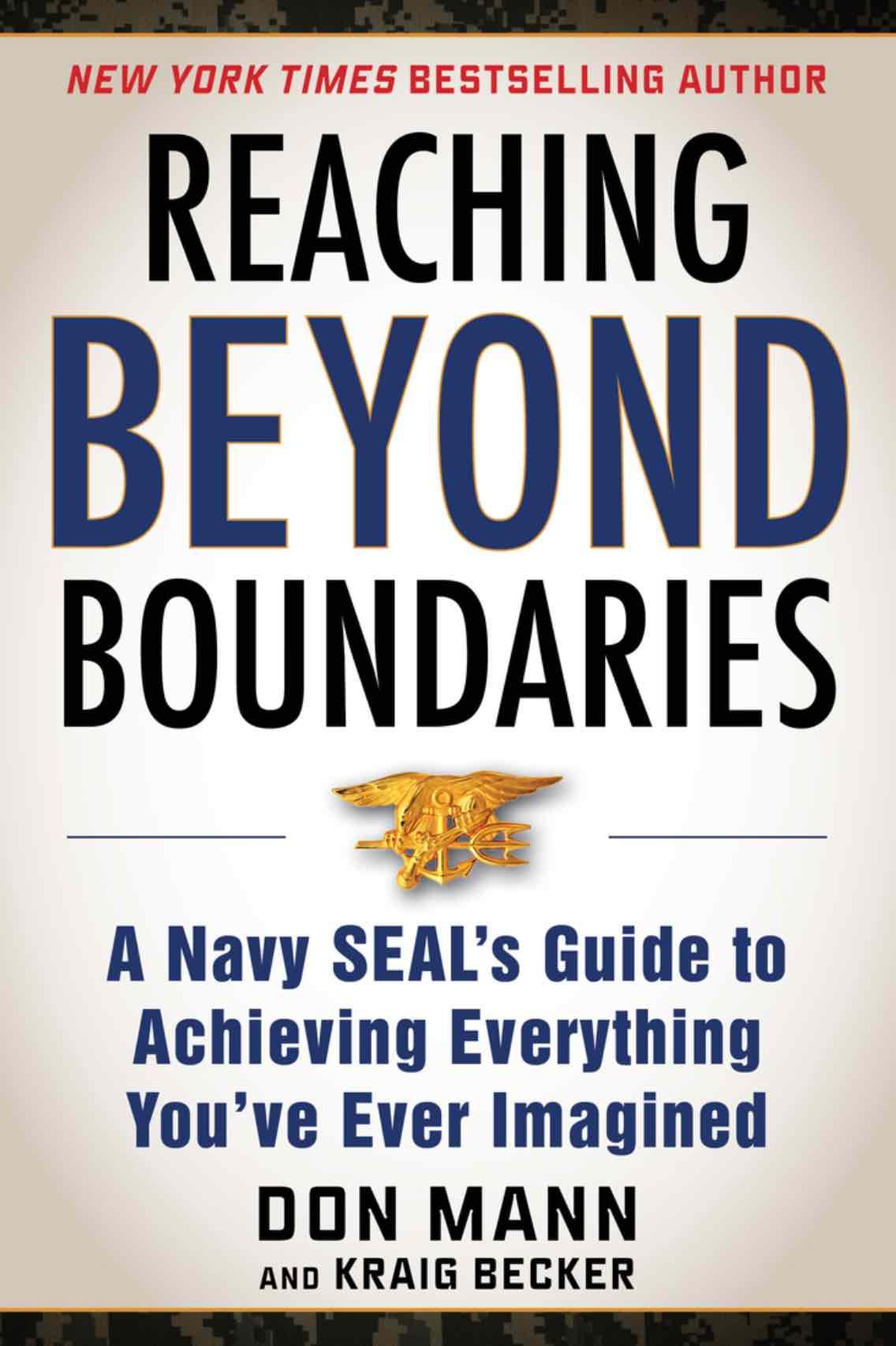 This excerpt is taken from “Reaching Beyond Boundaries: A Navy SEAL’s Guide to Achieving Everything You’ve Ever Imagined” by Don Mann and Kraig Becker.
To read other articles of this book, click here.
To buy this book, click here.
This excerpt is taken from “Reaching Beyond Boundaries: A Navy SEAL’s Guide to Achieving Everything You’ve Ever Imagined” by Don Mann and Kraig Becker.
To read other articles of this book, click here.
To buy this book, click here.
The Epoch Times copyright © 2023. The views and opinions expressed are those of the authors. They are meant for general informational purposes only and should not be construed or interpreted as a recommendation or solicitation. The Epoch Times does not provide investment, tax, legal, financial planning, estate planning, or any other personal finance advice. The Epoch Times holds no liability for the accuracy or timeliness of the information provided.

